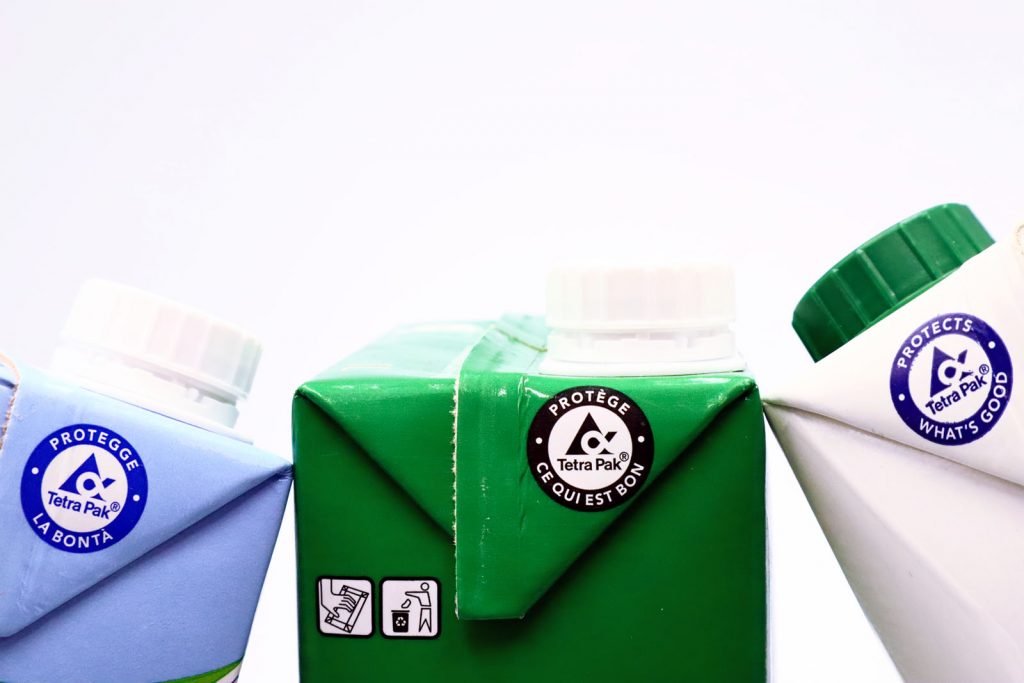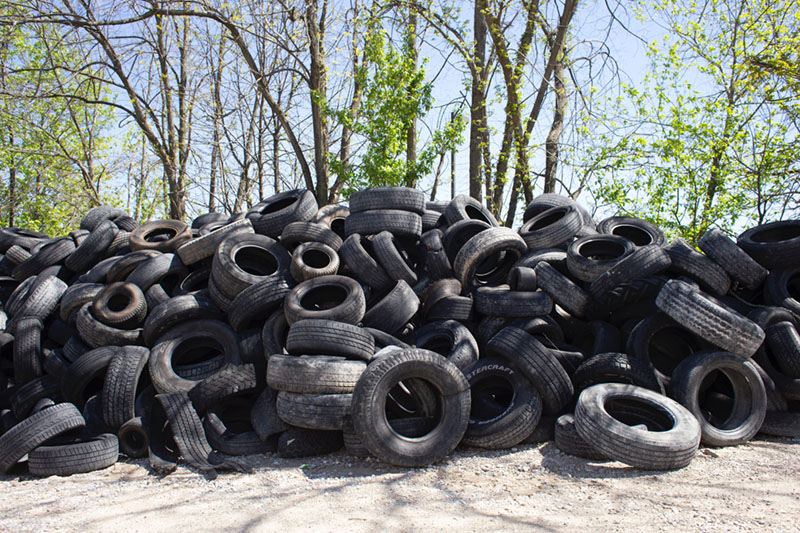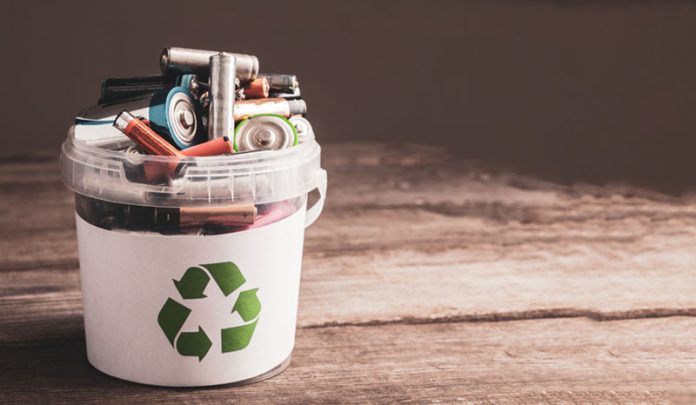Ahhh recycling, the “solution” for many of our damaged or outdated products that has a process that nearly everyone is confused by. Fortunately, responsibly getting rid of old items is easier now than ever before. We’ve done some deep digging to find out just how you can recycle those hard to recycle items.
1. Batteries
Single-use batteries contain many different materials that are recyclable. Fortunately, properly recycling them has become much easier in recent years because mail-in programs and drop off locations have become more available around the US.
In fact, you are required to do this in some states like California, where it is illegal to throw away a battery.
While it is not illegal in other states, many cities do have dedicated locations to accept household hazardous waste items, and will often have waste collection events, too. It’s best that you check your specific city and county websites to find out if and when this is available in your area.
The organization Call2Recycle has also ramped up their recycling program to now accept both rechargeable and single-use batteries at their collection sites. Consumers can look for participating sites on this locator and recycle batteries for free (including lithium ion batteries).
PRO TIP: As a general recommendation, check for battery recycling at home improvement stores, like Lowe’s and Home Depot.
2. Light Bulbs
Incandescent bulbs and lamps should be tossed in the trash. If they’re broken, they should be wrapped in a paper or plastic bag before being put in the trash can. Considering that incandescent light bulbs cannot be recycled, you may want to try a DIY upcycling project like turning it into a Christmas ornament or another craft.
Light emitting diode (LED) bulbs don’t contain some of the hazardous substances found in other bulbs, like mercury, but they do still contain arsenic and lead. For this reason, many communities do not accept these light bulbs in curbside recycling.
Fluorescent Tubes/ Compact Fluorescent Lightbulbs (CFLs) contain mercury, meaning that they cannot be safely disposed of in the trash can. While they have dangerous chemicals that can escape into the environment, they also have several materials that can be reused.
For this reason, some states (California, Maine, Massachusetts, Minnesota, New Hampshire, Vermont, and Washington) prohibit mercury-containing bulbs from entering landfills.
Fortunately, some private companies do accept these high-efficiency and mercury-containing bulbs. Other organizations also accept the bulbs by mail. Additionally, some cities have certain days or locations that do accept both LED and CFL light bulbs, so check with your local area to see if and when this is offered.
PRO TIP: Some chain stores like IKEA, Home Depot, and Lowe’s have in-store recycling, some of which accept light bulbs. Check with the specific store for more details. Batteries Plus accepts all types of light bulbs—in addition to other products like household, specialty, and even lead acid batteries. They do charge a small fee.
3. Plastic Bags
For the most part, plastic bags cannot enter your curbside recycling. While they’re made out of a type of plastic that can be recycled (high-density polyethylene #2 or low-density polyethylene #4), they can jam the recycling processing equipment and lead to possible facility shutdowns.
Fortunately, some companies and organizations have stepped in to make responsible recycling more accessible. Not only does this save our marine world, but it also prevents 11 billion barrels of oil from being produced for each ton recycled!
PRO TIP: Check with your local grocery store to see if they have a bin for plastic bag recycling. Many of the big chains (Whole Foods and Kroger) have a drop off in the front of the store.
4. TetraPaks
TetraPacks are the aseptic cardboard cartons that most commonly hold plant-based milk, soup, and other liquid food and beverage products. For the most part, they can be accepted through curbside recycling (although it’s recommended that you double check in your area first).


5. Contact Lens Cases
Because of their size and composition, it’s unlikely that contact lens cases are accepted through curbside recycling. Fortunately, many contact lens manufacturers either accept them themselves, or have partnered with recycling centers to properly recycle them.
PRO TIP: Bausch & Lomb has a process to recycle blister packs, top foil, and even the lenses themselves through a partnership with TerraCycle. Head here to find out more. Many eye doctors and recycling centers also participate, check here to find one near you.
6. Styrofoam
Styrofoam, AKA polystyrene, AKA plastic #6, AKA EPS is one of the more difficult plastics to recycle. However, recycling programs for this material are on the rise.
PRO TIP: Use this interactive map to find a polystyrene recycler near you. The EPS industry itself also has a map for recycling drop-off facilities (including many UPS stores). Larger styrofoam boxes also make great vegetable garden planters!
7. Cigarettes
Here’s one product that we rarely think about when it comes to recycling: cigarettes. This is interesting because it’s not difficult at all to find cigarette litter on a street, in a park, or even floating in the ocean.
Fortunately smokers can properly dispose of those butts—which can be transformed into a variety of industrial products, and the tobacco can be recycled as compost!
PRO TIP: TerraCycle is again helping out with another recycling project. They’ll accept the filter, extinguished cigarettes, loose pouches, plastic packaging, the inner foil, rolling papers, and even ash! Even better, for every pound that’s collected, Santa Fe Natural Tobacco Company donates $1 towards the Keep America Beautiful Cigarette Litter Prevention Program. Sign up here (psst, it’s free)!
8. Tires
As you could probably imagine, curbside tire recycling is not a thing. But when you realize that tires aren’t biodegradable and take up a pretty big space in the world’s growing landfills, simply tossing them just isn’t an option.


Tires can also be transformed into many valuable products, like asphalt, rubber mulch, cement, and new tires. That said, we should absolutely be recycling them.
PRO TIP: When you head in to get a new set of tires, the auto body shop might accept your old ones. Some scrap yards might pay you a couple bucks for old tires, too. This recycling locator can also help you find a place to recycle your tires, but if nothing else works you can always upcycle them into a tire swing, garden planter, or something else!
9. Mattresses
Mattresses are another notoriously difficult item to recycle—and their environmental impact is even bigger than tires. Mattresses heading to landfill has even been considered a “crisis” by The Guardian, and it truly is.
In the U.S. alone, more than 18.2 million mattresses are thrown away every year. And we only have 56 facilities available to recycle them.
PRO TIP: With just a few facilities designed to handle mattresses, the best bet is to try to keep yours in use longer. So, invest in a better bed if you can (some brands will even recycle your old mattress!), or consider donating your old mattress to an organization like Goodwill or Salvation Army (most likely, they can pick it up too). Follow this link to find a recycler near you.
10. E-Waste
E-waste: it’s those old iPhones, that broken laptop, and the printer that stopped working years ago. While these may seem worthless after breaking or being replaced by a newer version, they still contain many valuable materials (including some toxic ones that might cause problems if discarded)!
Fortunately, recycling e-waste is now easier than ever. Many recycling centers are specifically designed to recycle electronics, and some cities even have special events for e-waste recycling.
PRO TIP: Staples and Best Buy offer in-store recycling and haul away recycling options. Apple will give you credit or recycle your phone/tablet for free when you trade it in for a new device.
11. Textiles
If you’ve read our article on the impacts of fast fashion, you might remember that our textile waste problem is nothing short of massive—especially when you consider that more than half of the garments produced every year end up going straight to landfills or incinerators!
PRO TIP: Donating/selling to consignment shops is probably the first option you should consider for that bag of clothes that’s been sitting in your closet for months. American Textile Recycling Service will even pick up a box of clothes from you. For anything that can’t be donated (because it’s stained, torn, or missing hardware), World Wear Project, Green City Recycler, and some other local recycling centers may be able to help.














